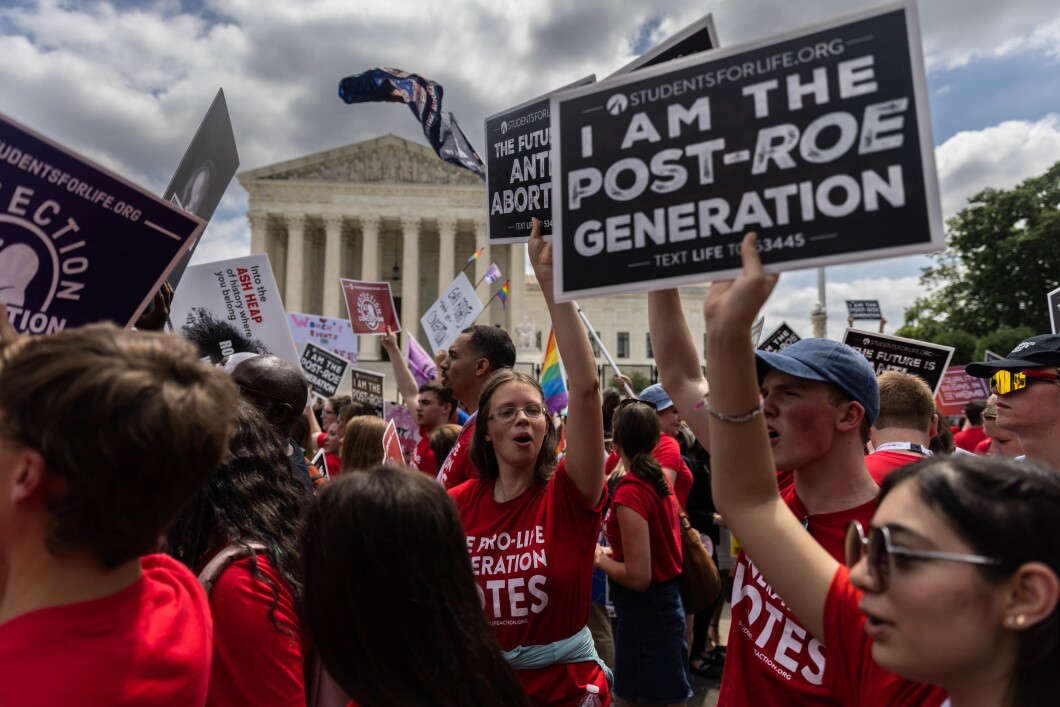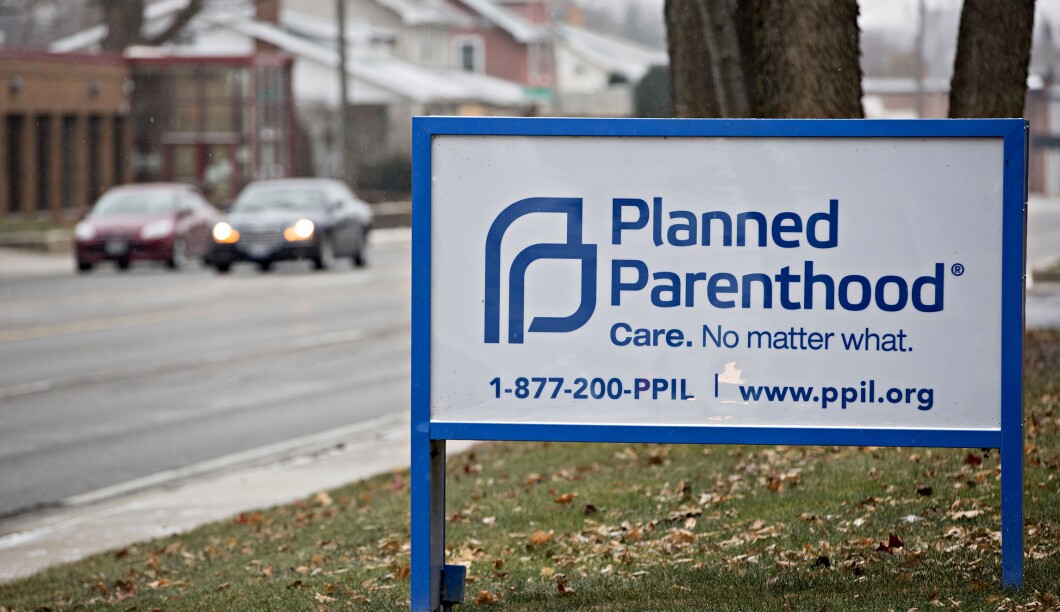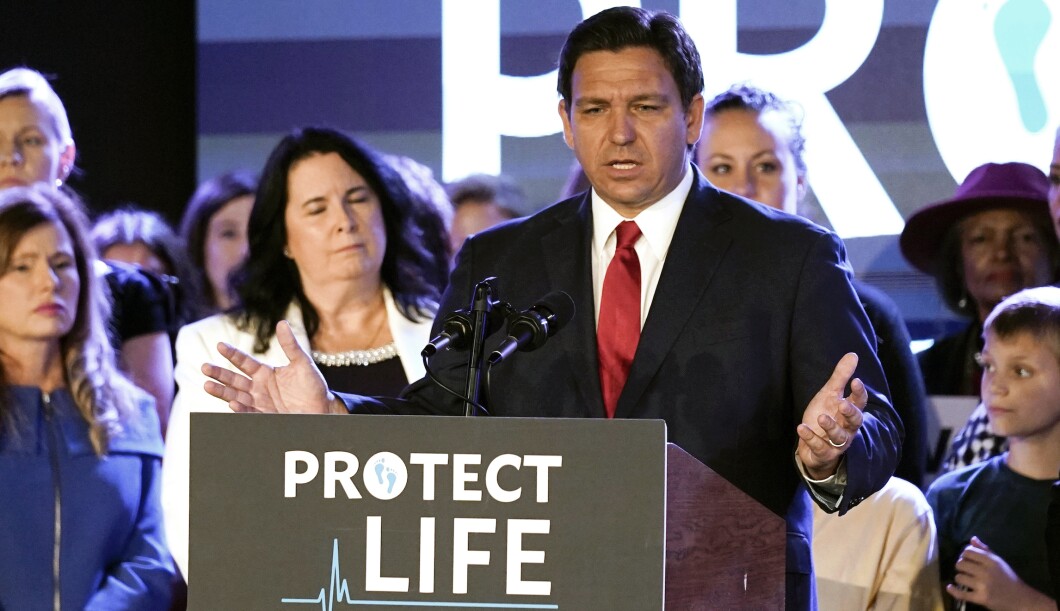
The Supreme Court‘s decision one year ago returning power to states to regulate abortion has led to even more unprecedented legal challenges.
Exactly one year after the Dobbs v. Jackson Women’s Health Organization decision usurped 50 years of abortion access precedent under Roe v. Wade, the legal landscape surrounding abortion has shifted dramatically, as abortion rights groups have filed lawsuits against restrictions in nearly two dozen states.
BIDEN MANAGES TENSE RELATIONS WITH CHINA AS COVID-19 ISSUES REEMERGE

On the flip side, the overturning of Roe was seen as a mere stepping stone for groups against abortions, which have taken to the courts to seek even further restrictions on matters such as the common abortion drug known as mifepristone.
Here is a look at the top legal issues surrounding abortion access one year after Dobbs.
The fate of the abortion pill

Almost immediately after the Dobbs decision, a case known as Alliance for Hippocratic Medicine v. FDA became the next legal behemoth to even further challenge access to abortion nationwide.
While Dobbs allowed Democratic-led states like Colorado, California, and half of the nation to continue broad protections for abortion access, the case against the abortion pill takes precise aim at the federal government’s approval of the drug across the nation.
Anti-abortion groups and doctors sued the Food and Drug Administration in Texas federal court, claiming the FDA unlawfully approved mifepristone over two decades ago. The drug is taken alongside misoprostol in a process that is used to terminate most early pregnancies.
In April, U.S. District Judge Matthew Kacsmaryk ruled that the agency improperly approved mifepristone and revoked its approval, marking the first time a judge had ever done so.
The FDA and Danco Laboratories, which distributes the name-brand version of the drug, appealed the case to the Supreme Court, which fully blocked the order while the case plays out. The U.S. Court of Appeals for the 5th Circuit heard arguments in mid-May, and the case awaits a decision.
In a separate but similar legal dispute, a federal judge paused Wyoming’s first-of-its-kind ban on medication abortions Thursday, citing the ongoing lawsuit pending in the 5th Circuit. Since Roe was overturned, 13 states have passed laws to ban medication in abortions.
Diana Banister, senior communications consultant for the anti-abortion group Concerned Women for America, told the Washington Examiner the FDA case is “probably at the top” of priorities for her group.
South Carolina’s fight to defund abortion-providing groups

The Supreme Court’s most recent abortion-related decision happened on Tuesday, allowing South Carolina to defend its effort to block Medicaid funding from going to Planned Parenthood and sending the case back to the 4th U.S. Circuit Court of Appeals.
Planned Parenthood South Atlantic is suing on behalf of Medicaid patient Julie Edwards following a 2018 executive order that removed the organization from South Carolina’s Medicaid program list.
The 4th Circuit upheld the district court’s permanent injunction against the defunding measure in 2022, saying it infringed upon the patient’s right to obtain other forms of nonabortion healthcare, such as contraception and cancer screenings.
Banister said the case, Kerr v. Planned Parenthood South Atlantic, is “little known” across the country but marks a major battleground to “protect a state’s right to direct tax dollars to support women and their unborn, instead of promoting abortion.”
Separately, South Carolina is at the core of another major abortion litigation fight over six-week bans after gestation. Less than 24 hours after Gov. Henry McMaster (R-SC) signed a fetal heartbeat bill, Planned Parenthood South Atlantic was awarded an emergency injunction blocking the legislation from being implemented.
Florida’s six-week abortion ban rests on outcome of 15-week suit

Gov. Ron DeSantis’s (R-FL) April signing of a law to impose a six-week abortion ban is on hold due to a lawsuit known as Planned Parenthood v. Florida, which is challenging the previous 15-week abortion law.
A trial court blocked the 15-week ban, though an appellate court reversed that decision, bringing it up to the conservative state Supreme Court that took up the case and allowed the law to remain in place while litigation is ongoing.
DeSantis, who is running for a shot at the Oval Office, has touted his record of reshaping the Florida Supreme Court into one of the most conservative state Supreme Courts in the country with a 6-1 Republican-appointed majority court.
Banister said the suit against the 15-week ban will “affect the current discussion of a possible six-week restriction going into effect.”
Texas suit alleges women were denied abortions despite health risks

Last month, at least eight more Texas women joined a lawsuit against the state attorney general and the executive director of the Texas Medical Board, arguing patients are being denied abortions despite maintaining that they are suffering from medical complications.
Texas passed a law in 2021 in anticipation of Roe’s overturning, which makes performing an abortion a felony unless the mother faces a “life-threatening physical condition” or “a serious risk of substantial impairment of a major bodily function.” But several women allege that despite those exceptions to the strict rule, doctors have suggested they seek help outside of the Lone Star State.
The initial lawsuit, known as Zurawski v. State of Texas, was brought by five women in March who said they were denied abortions despite grave risks to their lives, according to lawyers with the Center for Reproductive Rights.
CLICK HERE TO READ MORE FROM THE WASHINGTON EXAMINER
Litigants are seeking a temporary injunction to block bans on abortion in the state in the event of pregnancy complications.
They are also seeking clarification that abortion procedures may be permitted in the state if a pregnant woman has “a physical medical condition or complication of pregnancy that poses a risk of infection, bleeding, or otherwise makes continuing a pregnancy unsafe for the pregnant person,” among other medical complications, according to the lawsuit.





